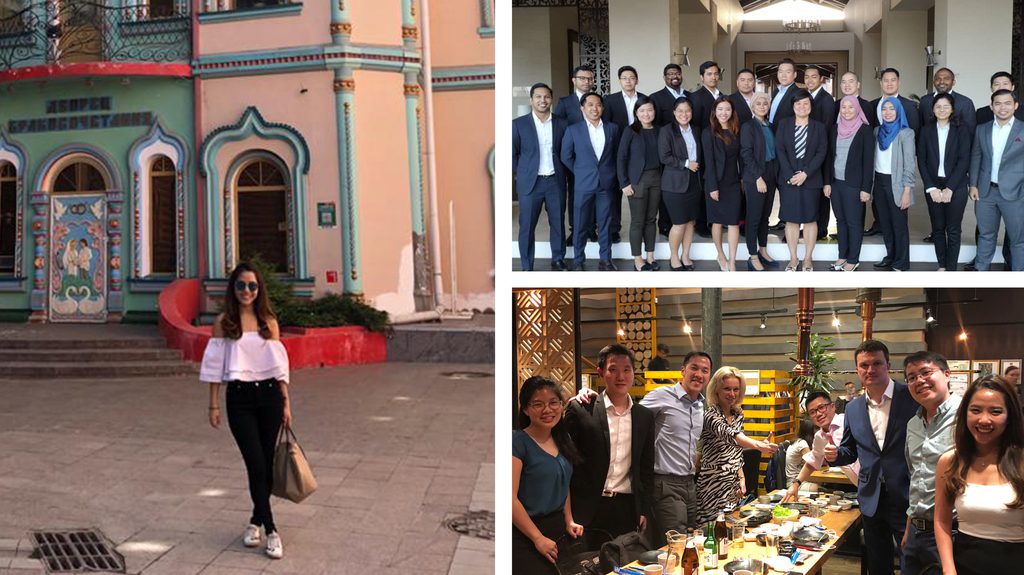By Serene Tan Zheng Xiew, Manager at PEMANDU Associates
Speak to a management consultant and what becomes apparent very quickly is not only the maddening work hours, but the constant travel. While this may bring about glamorous images of consultants with their customary Tumi bags working out of airport lounges, the constant travel can take quite a toll on – both physically and mentally.
Throughout my almost two-year stint here with PEMANDU Associates, our work in government transformation and my expertise has provided me with opportunities to not only work in a host of countries but to collaborate with people from different cultures. Projects would usually take ten to twelve weeks and throughout that time, we’re just working tirelessly to ensure that we can facilitate and develop strategies that will help achieve a business’ or government’s True North. And given the firm’s belief in delivering Big Fast Results, we often hit the ground running from the moment we land.
I’ve learned very quickly that one of the keys to a fruitful engagement is to quickly adapt to the people and the work culture of the country you’re in. There are no playbooks for this, so you have to be nimble enough to adapt on the job. This may sound trivial but acclimatising to new work cultures is important in ensuring that you can successfully manage project stakeholders and produce results. This is all part of the Big Fast Results approach that we at PEMANDU Associates consultants anchor our work on – in other words, to deliver tangible results in the quickest, most effective way possible.
To date, I have been assigned to projects in three different countries across three different continents, so you can imagine the vast differences in cultures. However, in preparing myself for the trips, I usually stick to a few ‘rituals’ which have been a lifehack of sorts, regardless of where I’m headed to.
Do Your Research!
Preparation begins way before you take-off!
Like a true consultant, every trip begins with an obsessive flurry searches into available databases shared by the Engagement Manager to study the country, its people and its customs. Next, I’d look out for information about the specific industry related to my assigned workstream and speak with our colleagues who have experience in similar industry experiences.
I’ve been involved in quite a few socio-economic transformation projects so my pre-reading also helps dig up insights on the country’s laws and policies. The last thing you would want to happen is to devise strategies based on policies that didn’t work before!
Call it old-fashioned, but appearances matter. Getting familiar with a culture’s dressing etiquette is another great step to ensure that you adhere to cultural boundaries. Prior to one of my work trips to Oman, I made sure my wardrobe was prepared to suit the Muslim-majority Sultanate to avoid offending my counterparts. Being outcome oriented, the last thing we’d want is for wardrobe mishaps to discount or hinder our work delivery.
Get Off on the Right Foot
My first two days in a new country will determine how the rest of the project will turn out. Ergo, it’s extremely important for me to make the right impression to my counterparts. The early stages of an engagement allow working teams to establish working processes, hours and norms. Use this time to communicate with your counterparts to understand the issues they have been facing so that they know you are here to help. One of the firm’s leadership principles is ‘building a winning coalition’ to ensure alignment towards a common outcome. And taking a people-first approach has been key to helping me achieve this!

R-E-S-P-E-C-T!
Aretha Franklin’s famous lyric has never rung more true. Respect is the foundation to being able to work well with people who are from different backgrounds. Afterall, you’re on their home turf so you have to play to their rules.
In St. Lucia, the people adhere strictly to their working hours (9am-5pm). This means any e-mails or work requests sent after 5pm will need to wait until the next day. For us Asians with a habit of working through ungodly hours, this means, if you promise to deliver something ‘by EOD’ it doesn’t mean end of day by your standards.
The good news is, the firm believes in rigorous planning (we call it a ‘3 feet plan’) which favours granular activity plans toward an outcome or deliverable. This makes it easy for us to plan our time efficiently to ensure that things are done with a clear direction and on time.
Keeping Your Mind on the End Goal
With the limited timeframe that we have on a given project, you need to maintain a razor-sharp focus on the project’s true north. There will be roadblocks in reaching the finish line and when they do appear, there are times where a stand has to be taken, and perhaps unpopular decisions made to move the needle. Problem solve the issue by finding alternatives, and in my case, I would seek information from other individuals who might also have access to stakeholders with greater authority. If there is a need to bypass individuals, seek help from your team lead or Engagement Managers, to get some time with the stakeholder in question (but remember to do so diplomatic in your approach!).
In the business of Big Fast Results, we don’t have the luxury of time to entertain prolonged inaction on a matter. So carry out your tasks relentlessly, monitor progress, and when faced with difficulties, continuously find solutions that can help you overcome them.

Build Camaraderie
Your work assignment is probably going to be the only time you will be visiting the country so why not make friends out of it?
One of the key components of PEMANDU Associates’ Big Fast Results (BFR) Methodology – 8 Steps of Transformation© is to hold a Lab. This is an intensive process where cross-functional groups of stakeholders are brought together over a period of 6-8 weeks to identify prioritised initiatives and action plans toward a common goal. A Lab can get very intense for everyone involved so to lighten up the mood, I usually utilise break times to chat with my stakeholders. Sometimes, we even play simple games just to break the ice! This actually helps build my relationship with my counterparts, which will consequently result in better working relations.
Spend time with your stakeholders, and get them to share more personal things. It will make adapting so much easier once you have newly made friends who can guide you on how to navigate around their culture.
Challenges abound when you carry out work in a different country. And while we may sometimes learn things the hard way, the key is that we learn. Our CEO, Dato’ Sri Idris Jala says that in the pursuit of a goal, even if we slip up the important thing is that we’re transformed along the way. And boy have I learned and transformed!